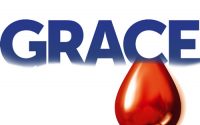LORD’S DAY & LORD’S SUPPER
Kuriokos (Lord’s Day) became a purely Christian word, meaning “belonging to the Lord.” Originally there was a dispute as to Who Is Lord: Caesar, or Christ? The use of the word by the early church was part of the protest against Caesar-worship. “Lord’s day” in the New Testament occurs only in Revelation 1:10, but in post-apostolic literature there are many references defining Christians’ day of worship assembly: “no longer keeping the Sabbath, but … the Lord’s day, on which our Light arose” (Ignatius, referring to Jesus’ resurrection on Sunday).
There were some references to “the eighth day” when Jesus arose, and when Christians kept “the feast” of celebration (commonly called the Lord’s Supper).
Acts 20:7 mentions “the first day of the week” when Christians worshiped by “breaking of bread.” Paul and his companions prolonged their visit to Troas so as to join in the service. Also see I Cor 11:23-29. I Corinthians 16:2 contains the command, “Upon the first day of the week let each one of you lay by him in store,” where the specified day of assembly of Christians cannot be doubted. This day is also mentioned in Mt 28:1, Mk 16:2, Lk 24:1 & Jn 20:1, 19. Sunday became the distinctive day for Christian worship, sharply distinguished from the Old Testament 7th day sabbath.
No man has authority to change the frequency of the sacred feast. See warning in Heb 10:25-31.
(#314)

